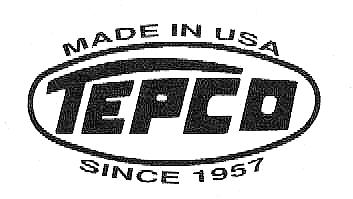

Conversion Method Versus Demodulation:
Tepco's FM translators use the dual heterodyne frequency
conversion method to translate the signal from one channel to another.
This is accomplished by mixing the incoming signal with a signal from a
crystal controlled local oscillator to arrive at an IF (intermediate frequency)
in the downconverter. This signal is then filtered, mixed with a second
local oscillator to arrive at the final output frequency in the upconverter.
The signal is then amplified and filtered to eliminate harmonics.
The conversion method has several advantages over
using demodulation and remodulation, the method used by several of our
competitors. The signal characteristics (such as deviation) of the original
incoming signal are preserved with the conversion method. This essentially
maintains the audio characteristics (loudness, frequency content, etc.)
of the original signal. FM stations already process their audio using compression,
limiting and other more advanced methods in order to achieve the desired
"sound." Often this is done so that the audio sound is more lively and
sounds better in a high noise environment such as an automobile. For example;
program material with large dynamic variations, such as classical music,
may need compression to make the soft passages audible above ambient noise.
The bottom line with our translators is: "what you put in is what you
get out." The FM station has already done the necessary processing.
Another advantage of the conversion method is frequency
stability. Since both local oscillators use the same type of crystal cut,
a frequency variation due to temperature in the downconverter local oscillator
is very closely offset by a corresponding change in the upconverter's local
oscillator effectively canceling out the frequency error.
The conversion method is technically simpler than
demodulation. This makes for a reliable unit and low power consumption.
High Noise Environments:
Tepco FM translators are designed to work well in high noise, low signal environments giving the system a larger margin in case of system degradation due to fades, antenna icing, etc. Tepco translators are noted for very low phase noise and can provide a usable signal with an input level as low as 10uV. Tepco also has an optional tower mounted pre-amplifier (see LP1) which can tolerate very high EMI fields from other FM and TV stations without overloading and creating intermodulation products. Tepco also has a line of filters (see accessories) which can be used to notch out interference.
Satalators:
Tepco translators also can be installed with an FM modulator, stereo generator, and audio processor providing filtering and adjustable compression. This essentially makes the translator an FM transmitter which can then be connected to a satellite receiver. This configuration, called a "Satalator," retransmits the stereo satellite program on an FM channel. Usually the downconverter module is not installed in satalators. DC operation is also an option for solar powered installations.
Other Tepco Advantages:
Our power amplifiers are conservatively rated. For
example; the J317 uses two 2N5643 transistors in
a push-pull configuration. This transistor is rated at 40 Watts and using
two of them makes for a very rugged amplifier. The power supply for the
J3250 (250 Watt amplifier) uses a saturating power
transformer which effectively protects the unit from power surges due to
lightning or other sources. The J3250 and J340 use
a boost switching regulator in the power supply for efficiency. In case
of switching regulator failure, the filtered input voltage to the switcher
is automatically routed to the output. This means that your translator
stays on the air at reduced power!
We use standard easily obtainable parts in our units
allowing quick repairs in the field. Of course units can also be sent to
us for repair and calibration with a quick turn around.
Our translators are known for reliability
and low power consumption making them attractive translator solutions
for remote sites. Several solar powered Tepco translators have been operating
reliably for years.
For more information, e-mail us at tepco@rapidnet.com
.